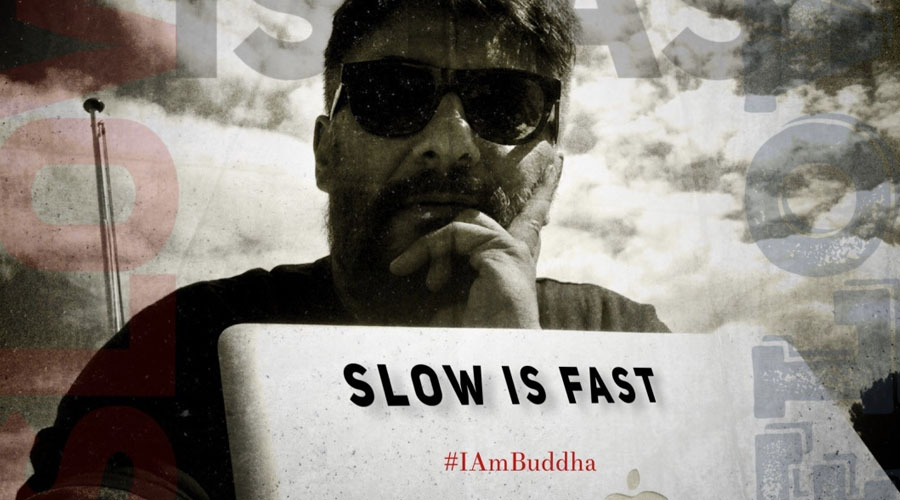I am sure all of you have heard the story of the rabbit and the tortoise, and its morale – The slow one wins the race. Does that mean slow is faster? Yes. Let’s see why.
‘Slow’ and ‘fast’ are not about the speed. They are about the mindset. It’s the life’s philosophy. The city life forces us to remain in a constant state of restlessness. If we laze around for some time, we start feeling guilty. Being workaholic, busy, rushing, choc-o-bloc schedules, multitasking are unnecessarily glamourised and are seen as the tenets of success. But the real success lies in slow philosophy which is taking the time to do things properly and thereby enjoying them more. I believe, success comes only when we enjoy things. And we can enjoy anything only when we we are in sync with the nature. The universe doesn’t move slow for a reason. Have you noticed when we sit in the mountains or in a village, the day becomes long. Why? Because we become slow. Our mind slowly comes in complete harmony with the process and movement of nature.
Slow living is healthier and more meaningful. Because when we are slow, we observe more, absorb more.
While fast living is all about achieving, competition, ambition and winning, the slow life is centred around meaning, fulfilment and joy. Fast living thrives on more and more… Slow life emphasises a less-is-more approach, focusing on the quality of your life… it pursues a more holistic sense of well-being.
When we rush, we are always outside the landscape. When we walk slow, we become one with the landscape. In fact, we become the landscape. That oneness is not possible if we run. When we eat slow, the food tastes more… we discover flavours, tastes, crispness and so on. When we talk slow, we listen more. When we drive sloe, we are safer. Slow doesn’t not mean dull. In fact, slow mind has more capacity to respond than the fast mind as fat mind is a busy mind. When you drive fast you have to use more mental energy to focus on avoiding risks. When you drive slow, you see the scenery, listen to the music and chat with your partner with more attention. This is just to illustrate that slow increases the quality. Slow also has financial and eco benefits. When we slow down, we often use fewer resources and produce less waste, both of which have a lighter impact on the earth.
My personal experience about slow life is what Brook McAlary says – about being prepared to let go. Caring more and caring less. Saying yes and saying no. Being present and walking away. Doing the important things and forgetting those that aren’t. Grounded and free. Heavy and light. Organised and flexible. Complex and simple. It’s about letting go of the excess stuff in our homes, learning how to live mindfully, getting in touch with our personal values and choosing to put them at the centre of all that we do.
It’s about embracing the fact that you’re not doing it all – it’s about doing less, but better. Anyone who does it better, reaches faster. Like the tortoise.
Be slow. Be better. Be #iAmBuddha
Note: you can also contribute to this column by sending your ideas, stories, fables, anecdotes. I’ll use them with due credits.


